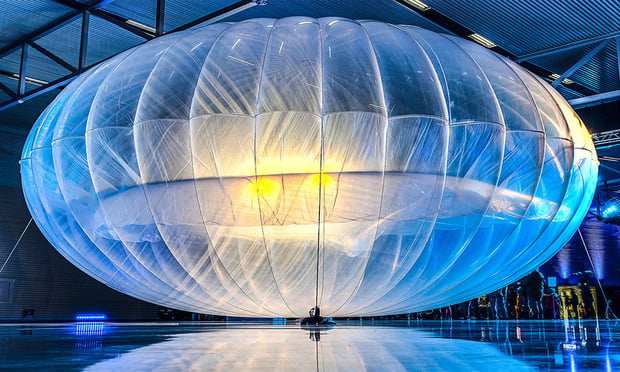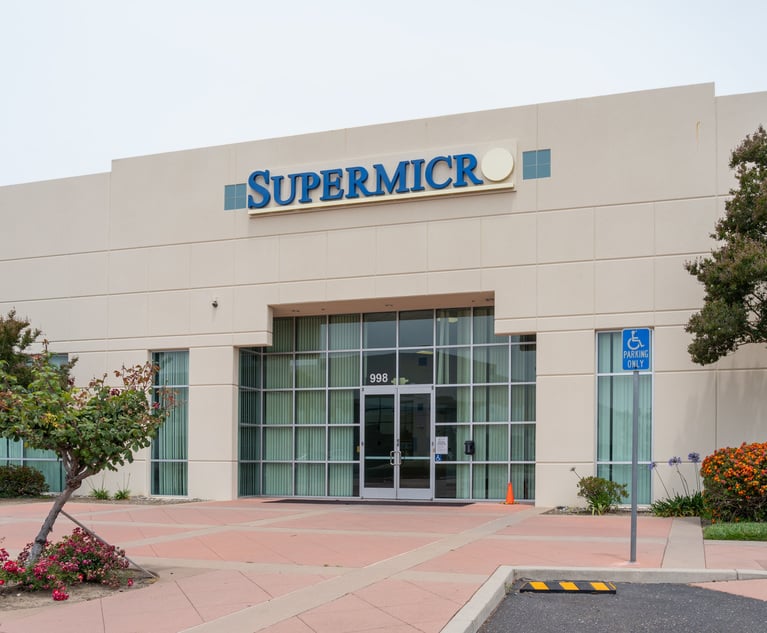Google Settles IP Case Over High-Altitude Balloons
Arizona-based Space Data had argued that Google's "Project Loon" rode on its trade secrets. Judge Beth Labson Freeman ruled earlier this year that Space Data had just enough to get past summary judgment.
July 29, 2019 at 07:07 PM
3 minute read
 Google Loon launch event of June 2013. Photo: iLighter/Wikipedia
Google Loon launch event of June 2013. Photo: iLighter/Wikipedia
Google has settled a singular intellectual property case that involves the deployment of balloons in the stratosphere to provide wireless communications on earth.
Space Data Corp. had been scheduled to go to trial next week with Alphabet Inc., Google LLC and subsidiary Loon LLC. But the parties notified U.S. District Judge Beth Labson Freeman of the Northern District of California on July 26 that they'd settled.
An attorney representing Space Data said he would have no comment, and Google did not immediately respond to a request for comment.
Space Data had sued Google over what Google had dubbed Project Loon: the idea of deploying a “mesh” of balloons all over the planet from 60,000 to 100,000 feet in the air. The balloons could send and receive communication signals from the ground, in theory making internet communications available anywhere.
Arizona-based Space Data said it patented “stratospheric balloon-based transceivers” many years ago, in large part for its Army and Marine Corps. clients. The company said it held valuable proprietary data about stratospheric wind conditions based on hundreds of thousands of flight hours.
Space Data entered into acquisition discussions with Google in 2007. Sergey Brin and Larry Page were among a team of about a dozen Google executives who toured Space Data's facility. The crew came armed with cameras and took notes, and some confidential data was loaded onto a Space Data Wiki created within Google, according to court papers.
The acquisition didn't go through, ostensibly because Space Data executives leaked news of the discussions prematurely to The Wall Street Journal.
Google then proceeded with Project Loon, saying it had independently developed the idea of using high-altitude balloons for communications. Any “residual” information Google employees may have obtained through unaided observations were specifically carved out of the two companies' nondisclosure agreement, Google noted.
Freeman cleared Space Data's trade secret claims for trial in May, though she stated it was “by an extremely thin margin and drawing all inferences for Space Data.”
“A jury could reasonably infer that Google used the photographs or notes to recall or delineate the trade secrets that were disclosed during the Tour,” Freeman wrote. And Google's records “show that numerous Google employees visited the Wiki.”
She likewise found that a genuine issue of material fact existed as to Space Data's claim for breach of the NDA.
Space Data also had sued for patent infringement, but Freeman found two patents contained indefinite claims, a third was not infringed, and the fourth is under review at the Patent Trial and Appeal Board.
Space Data was represented at the pretrial conference by Hosie Rice's Spencer Hosie, Darrell Atkinson and Francesca Germinario. Appearing for Google were Keker, Van Nest & Peters partners Robert Van Nest, Matthew Werdegar, Eugene Paige, Matthias Kamber and Ryan Wong and associates Leah Pransky, Shayne Henry and Andrew Bruns.
This content has been archived. It is available through our partners, LexisNexis® and Bloomberg Law.
To view this content, please continue to their sites.
Not a Lexis Subscriber?
Subscribe Now
Not a Bloomberg Law Subscriber?
Subscribe Now
NOT FOR REPRINT
© 2025 ALM Global, LLC, All Rights Reserved. Request academic re-use from www.copyright.com. All other uses, submit a request to [email protected]. For more information visit Asset & Logo Licensing.
You Might Like
View All
California Walnut Grower and German Investment Firm Vie for Lead Plaintiff Status in Super Micro Securities Action

Apple Files Appeal to DC Circuit Aiming to Intervene in Google Search Monopoly Case
3 minute read

Trending Stories
- 1The Law Firm Disrupted: Scrutinizing the Elephant More Than the Mouse
- 2Inherent Diminished Value Damages Unavailable to 3rd-Party Claimants, Court Says
- 3Pa. Defense Firm Sued by Client Over Ex-Eagles Player's $43.5M Med Mal Win
- 4Losses Mount at Morris Manning, but Departing Ex-Chair Stays Bullish About His Old Firm's Future
- 5Zoom Faces Intellectual Property Suit Over AI-Based Augmented Video Conferencing
Who Got The Work
J. Brugh Lower of Gibbons has entered an appearance for industrial equipment supplier Devco Corporation in a pending trademark infringement lawsuit. The suit, accusing the defendant of selling knock-off Graco products, was filed Dec. 18 in New Jersey District Court by Rivkin Radler on behalf of Graco Inc. and Graco Minnesota. The case, assigned to U.S. District Judge Zahid N. Quraishi, is 3:24-cv-11294, Graco Inc. et al v. Devco Corporation.
Who Got The Work
Rebecca Maller-Stein and Kent A. Yalowitz of Arnold & Porter Kaye Scholer have entered their appearances for Hanaco Venture Capital and its executives, Lior Prosor and David Frankel, in a pending securities lawsuit. The action, filed on Dec. 24 in New York Southern District Court by Zell, Aron & Co. on behalf of Goldeneye Advisors, accuses the defendants of negligently and fraudulently managing the plaintiff's $1 million investment. The case, assigned to U.S. District Judge Vernon S. Broderick, is 1:24-cv-09918, Goldeneye Advisors, LLC v. Hanaco Venture Capital, Ltd. et al.
Who Got The Work
Attorneys from A&O Shearman has stepped in as defense counsel for Toronto-Dominion Bank and other defendants in a pending securities class action. The suit, filed Dec. 11 in New York Southern District Court by Bleichmar Fonti & Auld, accuses the defendants of concealing the bank's 'pervasive' deficiencies in regards to its compliance with the Bank Secrecy Act and the quality of its anti-money laundering controls. The case, assigned to U.S. District Judge Arun Subramanian, is 1:24-cv-09445, Gonzalez v. The Toronto-Dominion Bank et al.
Who Got The Work
Crown Castle International, a Pennsylvania company providing shared communications infrastructure, has turned to Luke D. Wolf of Gordon Rees Scully Mansukhani to fend off a pending breach-of-contract lawsuit. The court action, filed Nov. 25 in Michigan Eastern District Court by Hooper Hathaway PC on behalf of The Town Residences LLC, accuses Crown Castle of failing to transfer approximately $30,000 in utility payments from T-Mobile in breach of a roof-top lease and assignment agreement. The case, assigned to U.S. District Judge Susan K. Declercq, is 2:24-cv-13131, The Town Residences LLC v. T-Mobile US, Inc. et al.
Who Got The Work
Wilfred P. Coronato and Daniel M. Schwartz of McCarter & English have stepped in as defense counsel to Electrolux Home Products Inc. in a pending product liability lawsuit. The court action, filed Nov. 26 in New York Eastern District Court by Poulos Lopiccolo PC and Nagel Rice LLP on behalf of David Stern, alleges that the defendant's refrigerators’ drawers and shelving repeatedly break and fall apart within months after purchase. The case, assigned to U.S. District Judge Joan M. Azrack, is 2:24-cv-08204, Stern v. Electrolux Home Products, Inc.
Featured Firms
Law Offices of Gary Martin Hays & Associates, P.C.
(470) 294-1674
Law Offices of Mark E. Salomone
(857) 444-6468
Smith & Hassler
(713) 739-1250






